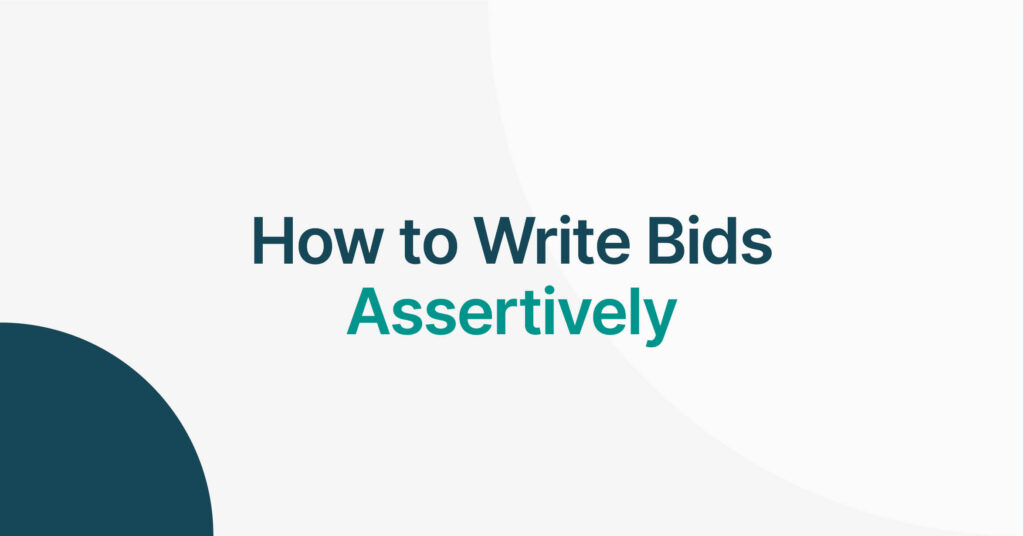Tender Questioning
Tender Questioning – Tender Training
It is important to consider the format of, and meaning behind, tender questions before you jump in to start answering them. These sorts of considerations are not as obvious as many people think. Indeed, a lot of suppliers trip up by not fully understanding the requirements of a question before starting to answer.
Tender questions are often complicated and multi-faceted. They contain various sub-clauses and hence require a little bit of thought, concentration and consideration before answering.
The words used for a particular question will have been carefully selected to elicit a specific type of response from those bidding for work. Hence the importance of understanding exactly what these words mean and the response expectations in terms of content, style and format that a buyer will have when they use them.
In order to construct the best response possible, that answers the question directly and fulfils the buyer’s expectations, it is vital to understand some of the key phrasing buyers use. Particularly, the meaning of these phrases, as well as the expectations and connotations associated with these.
Here are a couple of key phrases buyers might use:
Evaluate
The key here is to weigh up the advantages and disadvantages or pros and cons of a process, policy, argument or procedure and come to an overall judgement on its effectiveness or impact. An example question might be “Evaluate the success of a previous project of a similar nature and tell us what you learned.”
Describe
Be as detailed as possible here and provide insight into the particular characteristics of what you are talking about, in a clear, concise, objective and neutral manner. An example question could be “Please describe the challenges involved in the last contract of this nature that you undertook.”
Explain
These questions expect you to clarify or provide more information about a topic. It is a good idea to set this out in the clearest and structured way possible. Pretend you are writing to someone who knows absolutely nothing about the subject. Provide context, definitions for sector-specific key terms, and remember the 3 C’s: clear, coherent and concise. Indeed, you might be asked for example “Explain your approach to managing the delivery of this project.”
Detail
When the buyer asks you to detail something, this is similar to an explain question, but as you have probably guessed, the emphasis is on detail here. The buyer will be looking for facts, figures and other data and will be looking for exact processes, procedures and methods. For example, you might be asked to “Detail your existing knowledge of this topic area.”
Discuss
The buyer will be looking for a reasonably in-depth answer taking into account all aspects of the debate surrounding a given issue. You will be expected to provide a reasonably detailed examination of a subject by discussing it from various perspectives. You may be asked to “Discuss the projected benefits of this scheme” or “Discuss lessons learned from a past project.”
Identify
Here you need to simply point something out and set out the main ideas in a short, to the point and coherent way. A common question is “Identify the key risks associated with this project.”
Outline
Here a buyer will be expecting you to present a coherent and organised description in your response. You need to provide only the main points and any important supplementary information, as opposed to focusing on specific details. Think of this as a general, but nonetheless thorough overview. For example, you may be asked: “Please outline your approach to Health and Safety considerations on the project.”
Summarise
Here the buyer will be looking for a condensed form of the main points or facts, a little bit like the outline we have just talked about. A summary must not focus on minor details but must instead be brief and straight to the point, getting all the relevant points across in as succinct and clear a manner as possible. An example question could be “Please summarise the key milestones of your proposed delivery timetable.”
Demonstrate
Demonstrate questions require you to use several examples and piece of evidence. Essentially, the buyer will be looking for you to prove your competence and ability in a given area. You need to bolster your claim that you’re the right individual or organisation for the job by providing valid evidence to establish a strong case, leaving the buyer in no doubt that they should pick you. For example, you may be asked to “Demonstrate that you have the professional competencies to deliver this project.”
It is important to note though, that this list is exhaustive. These are just a few examples of words and phrases that buyers use. Do not fall into the trap of being blinded by terminology. Instead, take a step back and understand what is required of you, and write accordingly.
If you or your organisation are struggling with any part of this, our dedicated Tender Consultants are here to help you. We can review your bids, check that you’re answering the questions the way they should be answered, or even write the responses for you.
Let us do the hard work for you – our internal experts are keen to take the weight off your shoulders and tackle the complicated business of responding to the questions in your bid.
We will help you navigate the minefield of tender questions and specific terminology, helping you to push for success every single time!
Ask us anything via our LinkedIn forum.








